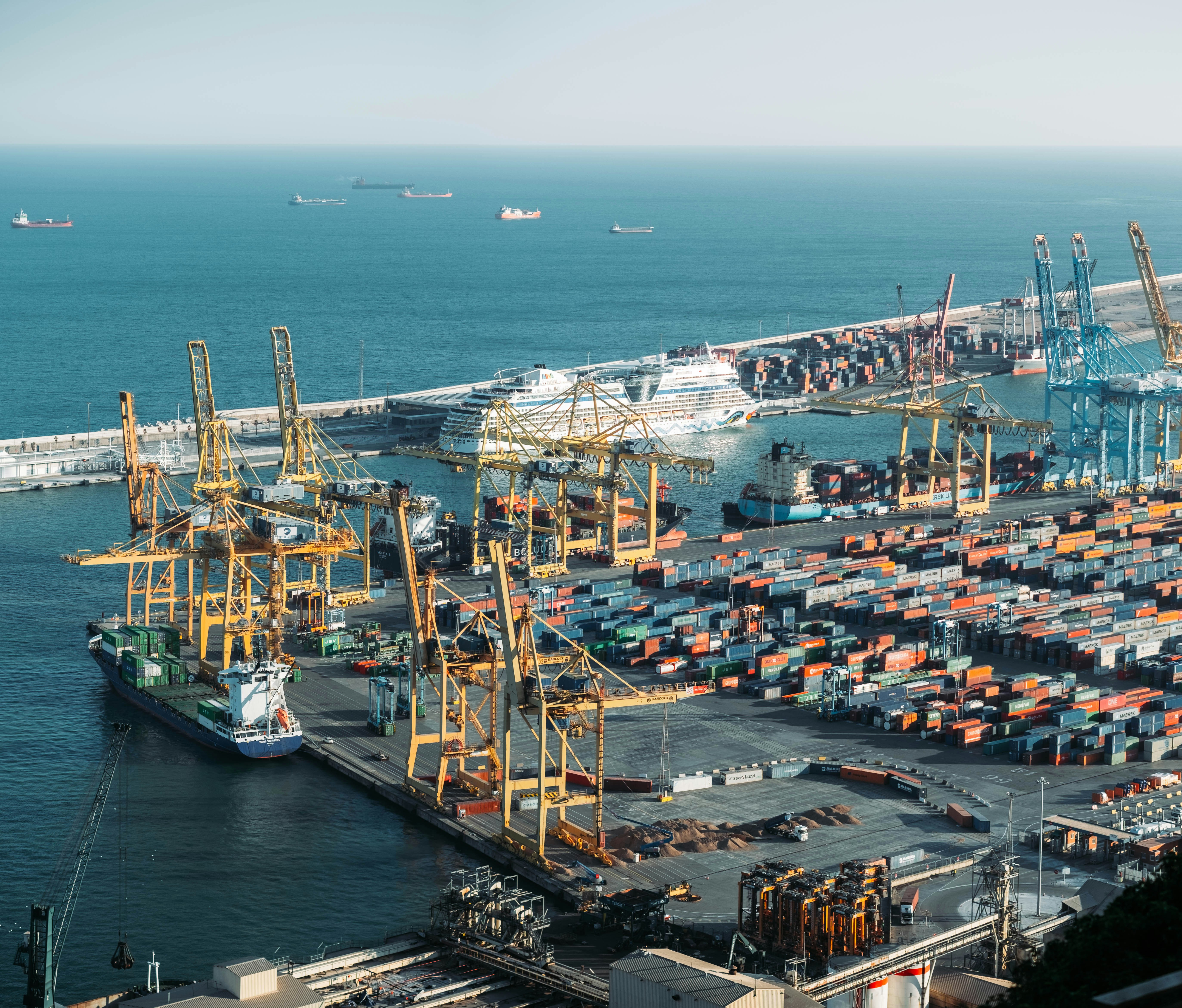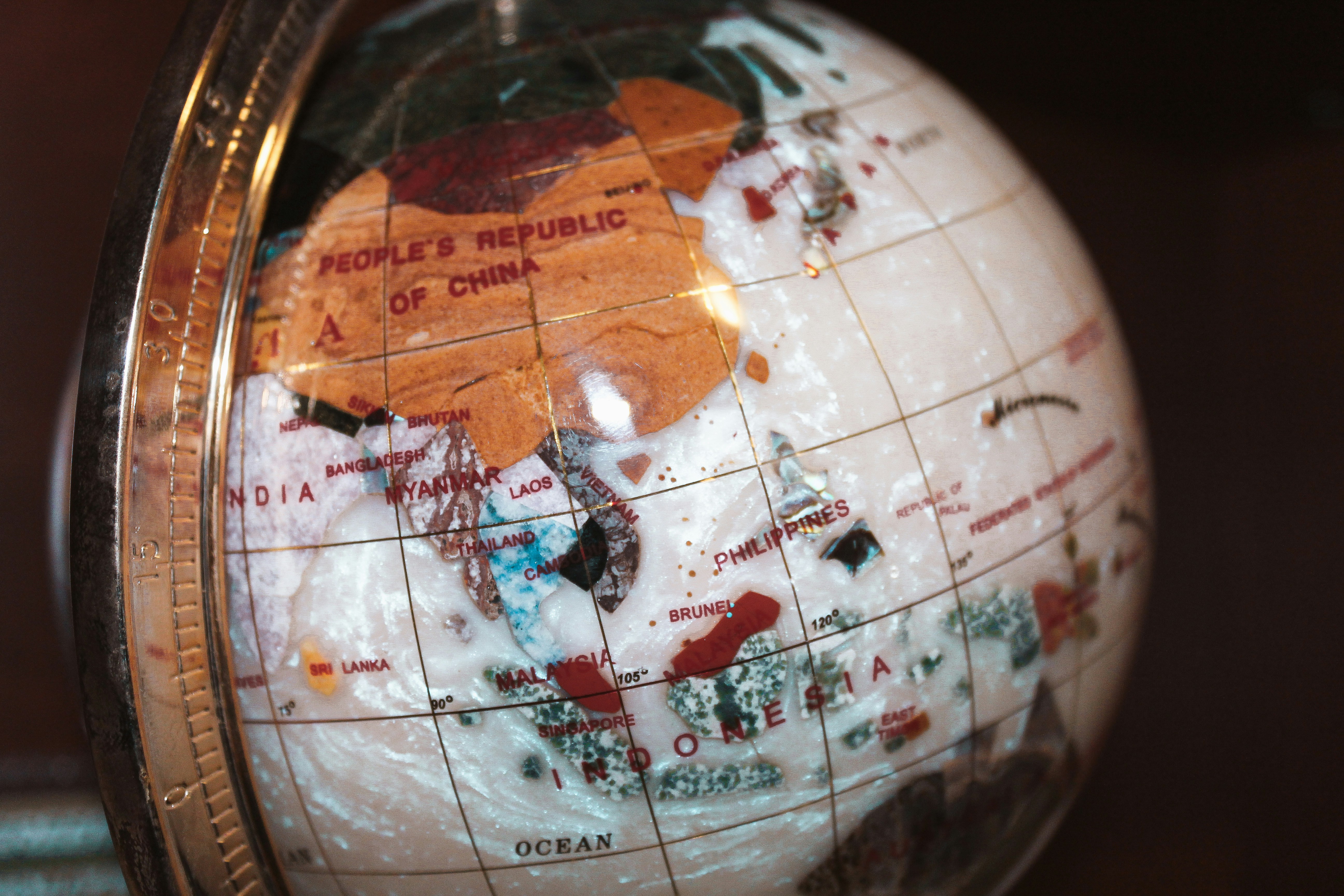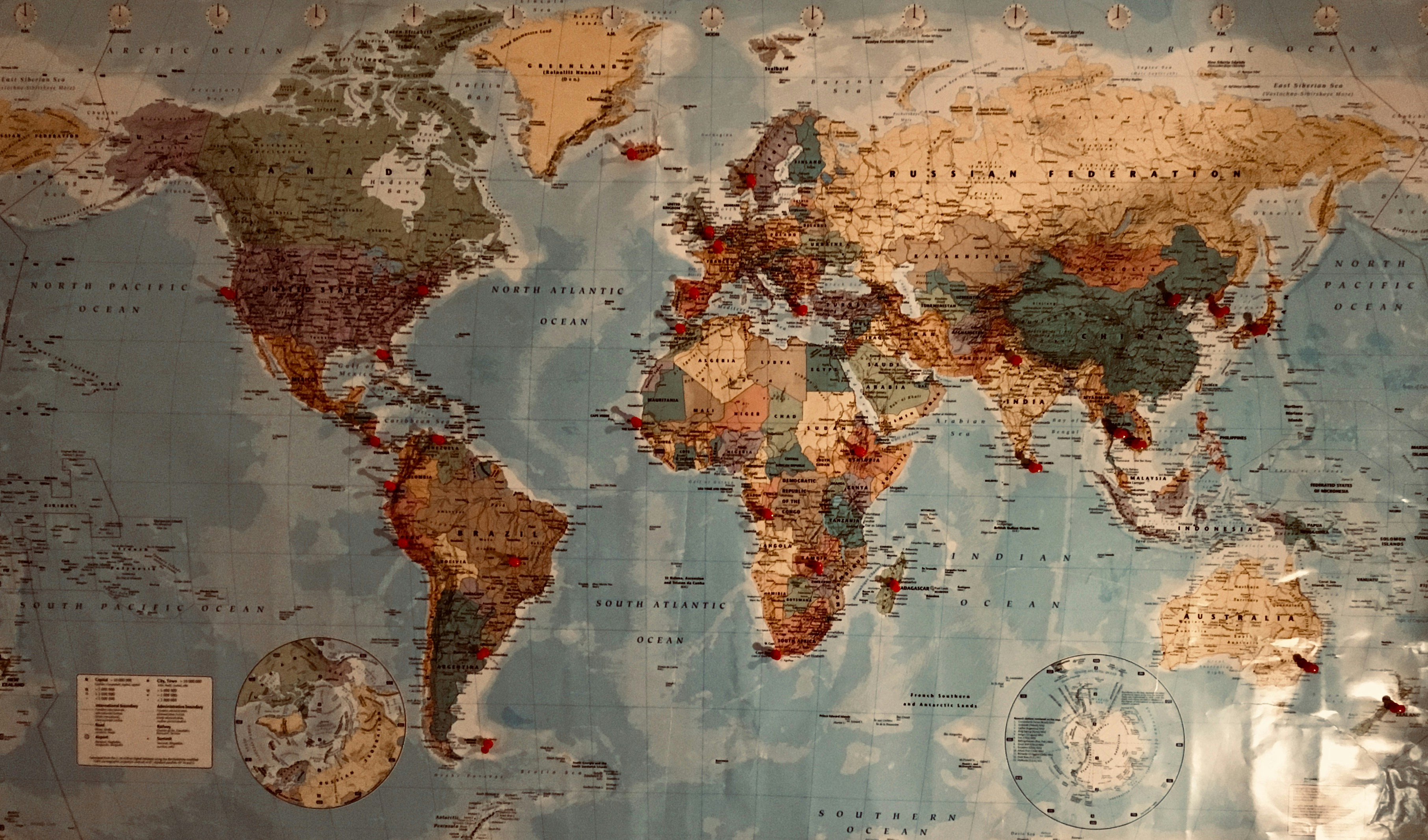Introduction

As we delve into international trade, it's crucial to understand what China is importing and exporting and how this impacts the global economy. Global trade is pivotal in driving economic growth and fostering relationships between nations. If you're considering getting started in the import and export business, it's essential to comprehend the dynamics of China's import-export landscape.
What is China Importing and Exporting?
China is a major player in global trade, importing a wide range of goods such as machinery, electronics, and mineral fuels while exporting products like electrical machinery, textiles, and furniture. Understanding these trade flows is key to navigating the intricate web of international commerce.
The Importance of Global Trade
Global trade forms the backbone of modern economies by facilitating the exchange of goods and services across borders. It brings numerous benefits, including:
- Fostering economic development: Global trade promotes overall economic growth by allowing countries to specialize in what they produce most efficiently.
- Creating job opportunities: Trade creates jobs in both exporting and importing countries, as businesses involved in international trade hire more workers.
- Enhancing cultural exchange among nations: As goods and services flow between countries, so do ideas and cultures, fostering a greater understanding and appreciation of different ways of life.
Global trade plays a vital role in promoting economic prosperity, creating jobs, and fostering cultural understanding.
Getting Started in the Import and Export Business
Venturing into the import-export business offers exciting opportunities for growth and expansion on an international scale. Whether you're looking to source products from China or expand your market reach by exporting goods there, understanding the nuances of global trade is paramount.
Understanding China's Importing and Exporting

China is crucial in global trade, serving as the world's largest exporter and second-largest importer. With its vast manufacturing capabilities and access to a wide range of resources, China has become an integral part of the global supply chain, influencing the movement of goods across borders.
The Role of China in Global Trade
China's influence on global trade is undeniable. It has transformed from a regional player to a dominant force in international commerce. Here's how:
- Manufacturing powerhouse: China boasts a large population and a well-developed industrial sector, making it a global leader in manufacturing a wide range of goods, from electronics to textiles.
- Trade giant: China is the world's largest trading nation by total trade volume, acting as both a major importer and exporter.
- Economic driver: China's export boom has fueled its economic growth, creating jobs and raising living standards for millions.
- Global partner: China has fostered diplomatic ties with many countries through trade agreements, fostering a more interconnected world.
China's role in global trade is multifaceted, shaping economies, creating jobs, and influencing international relations.
Benefits of Import Export Business
Engaging in import-export activities with China provides access to high-quality products at competitive prices and opens up new market opportunities for businesses worldwide. By tapping into the vast consumer base in China, companies can expand their reach and establish a strong presence in an increasingly globalized economy. This diversification of market access can help businesses mitigate risks associated with relying solely on domestic sales, providing a buffer against economic downturns or fluctuations in local demand.
Understanding the definition of export is essential for anyone involved in the import-export business. It refers to sending goods or services produced within one country to another for future sale or trade. Import-export involves exchanging goods and services between countries through international trade agreements. Global trade encompasses all economic transactions that take place between different countries around the world.
Now that we've gained insight into the role of China in global trade and explored the benefits of engaging in import-export business with this powerhouse nation let's delve deeper into navigating the import-export process with China.
Navigating the Import and Export Process

Navigating the import and export process can be daunting, especially when dealing with a powerhouse like China. Key considerations for importing from China include understanding the local regulations, finding reliable suppliers, and ensuring quality control. When successfully exporting to China, it's crucial to understand the local market, build strong relationships with potential partners, and adapt to cultural differences. Navigating this process requires careful planning and a deep understanding of the import-export business landscape.
Key Considerations for Importing from China
When importing from China, conducting thorough research on product regulations and customs requirements is essential. Understanding the legal framework for importation is crucial to avoid potential legal issues or delays. Additionally, finding reliable suppliers with a proven track record of quality products is key to ensuring a smooth importing experience. Lastly, a robust quality control system is essential to maintain product standards and customer satisfaction.
In addition to understanding product regulations and finding reliable suppliers, it's essential to consider the logistics of importing from China. This includes transportation, shipping methods, and lead times. Working with a freight forwarder or logistics company can help navigate these complexities and ensure the timely delivery of goods. By carefully planning the transportation aspect of importing, businesses can avoid unnecessary delays and keep their supply chain running smoothly.
Tips for Successful Exporting to China
Entering the Chinese market offers vast opportunities but requires careful preparation. Here are five key steps to success:
- Conduct Market Research: Understanding consumer preferences and regional trends is crucial for tailoring your product or service for the Chinese market.
- Build Local Partnerships: Collaborate with distributors or partners who have experience navigating the complexities of Chinese regulations and business practices.
- Adapt to Local Preferences: Be prepared to adjust your offerings to suit Chinese tastes and cultural expectations.
- Understand Regulations and Etiquette: Navigating customs procedures, tariffs, and legal requirements is essential. Building trust with your Chinese counterparts involves respecting cultural nuances and business etiquette.
- Seek Expert Guidance: The import-export process can be complex. Consulting with experts can help ensure compliance with regulations and avoid delays.
By following these steps and staying informed about industry trends, businesses can successfully navigate the import-export landscape and thrive in the Chinese market.
Legal Considerations in Import Export Business

The importance of contract drafting and review in the import-export business cannot be overstated. Ensuring that both parties clearly outline and understand all terms and conditions is crucial for a successful trade relationship. This is where AC&E's professional legal team comes in, with expertise in international trade disputes to provide guidance and support throughout the process.
Importance of Contract Drafting and Review
Drafting and reviewing contracts is a fundamental aspect of the import-export business. Clear and concise contracts help avoid misunderstandings, disputes, and legal issues down the line. It's essential to have legal experts who specialize in international trade to ensure that contracts are comprehensive and legally sound. Additionally, well-drafted contracts can help establish a strong business relationship with global partners, as they demonstrate professionalism and attention to detail. This can lead to smoother negotiations and better understanding between parties, benefiting the import-export business.
Resolving International Trade Disputes
In the complex world of global trade, disputes can arise for various reasons, such as breach of contract, quality issues, or non-payment. Resolving these disputes requires a deep understanding of international trade laws and regulations. AC&E's legal team specializes in resolving global trade disputes, providing practical solutions to protect your business interests.
AC&E: Professional Legal Team with Expertise in International Trade Disputes
AC&E has a dedicated legal professional team specializing in international trade disputes. With their extensive knowledge and experience, they can easily navigate complex legal issues related to China's importing and exporting, ensuring that your business is protected at every step.
Establishing a Presence in China

To establish a presence in China, it's crucial to understand the different company establishment options available, such as Wholly Foreign-Owned Enterprise (WFOE), Representative Office (RO), and Foreign-Invested Enterprise (FIE). Each option has its advantages and disadvantages, so it's essential to carefully consider which best aligns with your business goals and objectives.
Regarding company due diligence and verification, conducting thorough research and background checks is essential for ensuring you enter into partnerships or agreements with reputable and trustworthy entities. This process can help mitigate potential risks and safeguard your import-export business from unforeseen complications or disputes.
Now that you have a better understanding of the company establishment options available in China and the importance of due diligence and verification, you can make informed decisions that will contribute to the success of your import-export business. By carefully navigating these crucial steps, you'll be well-positioned to establish a strong presence in China's thriving import-export market. It's essential also to consider the cultural nuances and business practices in China, as they can greatly impact your operations. Building strong relationships with local partners and understanding the Chinese market trends will give you a competitive edge.
Protecting Intellectual Property in Import Export Business

In the world of import-export business, protecting intellectual property is crucial for success. Foreign Intellectual Property Protection is essential to safeguarding your unique products and ideas from being copied or stolen. AC&E provides expertise in this area, ensuring your intellectual property is legally protected in domestic and international markets.
Foreign Intellectual Property Protection
When engaging in global trade, securing foreign intellectual property protection is vital to prevent unauthorized use of your trademarks, patents, and copyrights. AC&E offers comprehensive legal services to help you navigate the complex landscape of international intellectual property laws and regulations, allowing you to safeguard your innovations and creations from infringement.
Securing foreign intellectual property protection is crucial in today's global marketplace, where the risk of infringement is high. With AC&E's comprehensive legal services, you can trust that your trademarks, patents, and copyrights will be safeguarded from unauthorized use. Our expertise in navigating international intellectual property laws and regulations ensures that your innovations and creations are protected, giving you peace of mind as you engage in global trade.
AC&E: Expertise in Foreign-Related Marriage and Inheritance
In addition to protecting intellectual property, AC&E specializes in foreign-related marriage and inheritance matters. With their expertise in international legal affairs, they can assist import-export businesses with family law issues that may arise when conducting business across borders.
With their deep understanding of international legal affairs, AC&E can guide prenuptial agreements and marriage contracts for individuals involved in cross-border relationships. This can help ensure that both parties' rights and assets are protected in the event of a divorce or inheritance dispute. By addressing these matters proactively, import-export businesses can mitigate potential legal issues that may arise due to family law complexities across different jurisdictions.
Conclusion

As China continues to play a pivotal role in global trade, the future of importing and exporting with the country looks promising. With its vast market and growing economy, businesses have endless opportunities to thrive in the import-export industry. Furthermore, the Chinese government's commitment to opening up its markets and reducing trade barriers provides a conducive environment for international trade. This creates a favorable landscape for businesses looking to expand their operations and tap into the immense potential of China's consumer market.
At AC&E, we understand the complexities of international business and offer tailored legal solutions to ensure smooth operations. Our team of experts is well-versed in import-export laws and can provide comprehensive guidance to navigate the legal aspects of global trade. With our in-depth knowledge of customs regulations, tariffs, and trade agreements, we can help your import-export business thrive in the competitive global market. Our personalized approach ensures that your specific needs and challenges are addressed with precision and expertise.
With our expertise and support, taking your import-export business to the next level is within reach. Whether you want to expand your operations or establish a presence in China, AC&E can provide the legal assistance needed for success.
